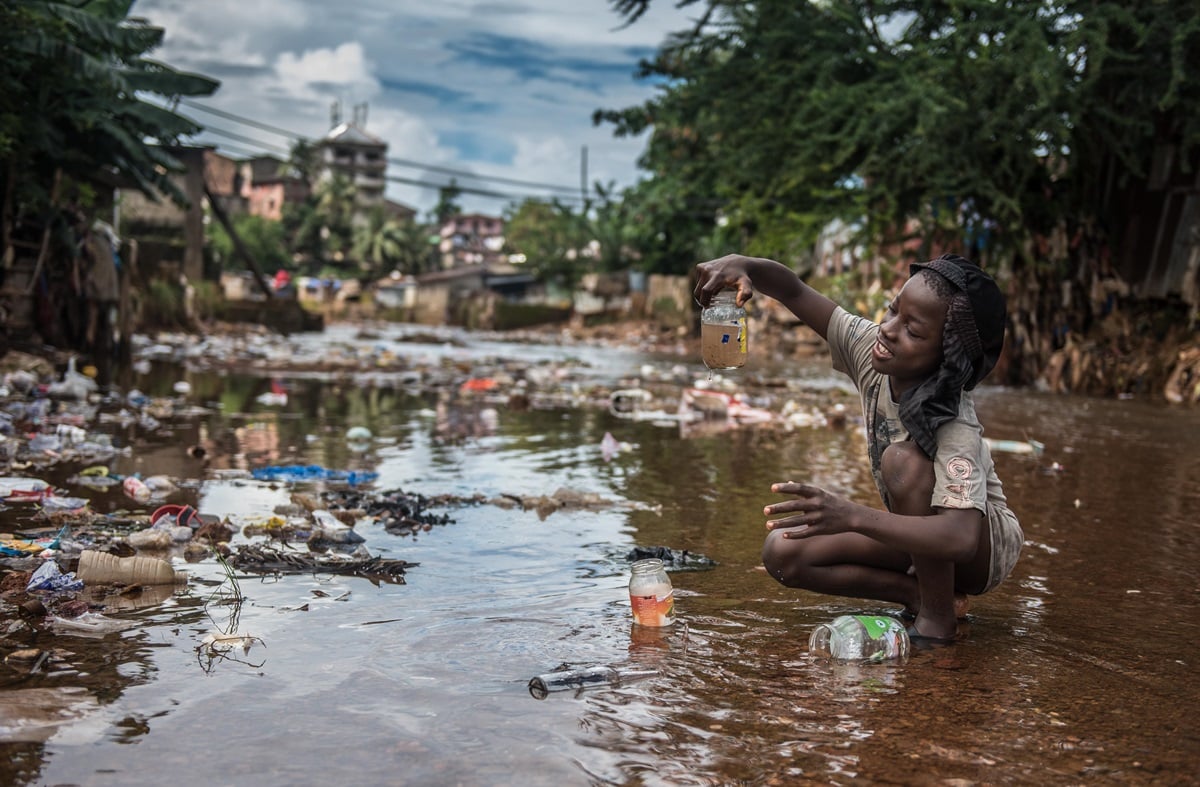
Originally written for Counterfire.
Four months after cholera reappeared in the impoverished neighbourhoods of Haiti, 496 people have died from the disease, 21,407 have been hospitalised, and there are a total of 25,182 suspected cases. People of all ages have been stricken but those between one and four years old are the worst affected. This outbreak is striking fear among those who remember 2010, when infected sewage that was released by UN ‘peacekeepers’ led to an outbreak of cholera in Haiti that claimed 10,000 lives and sickened 800,000 people.
The return of cholera to Haiti is taking place in the context of an appalling proliferation of the disease internationally. The World Health Organisation (WHO) reports that 23 countries experienced ‘cholera outbreaks’ in 2021 and that this increased to 29 during 2022. In sixteen countries, the spread of the disease took the form of ‘protracted outbreaks’. Moreover, many ‘of those countries reported higher case numbers and case fatality ratio (CFR) than in previous years.’
Disturbingly, WHO notes that of ‘particular concern are the outbreaks in 13 countries, which did not report cholera cases in 2021. Of these, some had not reported any cholera outbreaks for many years (between three and 30), and several are not considered cholera-endemic countries.’ Though the report hardly goes out of its way to point fingers at responsible players, the assessment that it provides is quite shocking.
Preventable deaths
WHO makes clear that, when it comes to the prospects for containing cholera, the ‘lack of funding to prevent outbreaks is critical’. Tellingly: ‘Large-scale investments in water and sanitation infrastructure have largely led to the elimination of cholera in Europe and the Americas.’ We see immediately that this upsurge in cholera is no ‘act of God’ but that it has a great deal to do with the allocation of global resources.
The floods and droughts caused by the impact of climate change provide breeding grounds for cholera. The countries that faced outbreaks in 2022 included some that had experienced just these effects. These included Mozambique and Malawi that had endured cyclones, as well as Pakistan and Nigeria, where major flooding had occurred. Countries in the drought-stricken Horn of Africa were also affected.
The report notes that countries experiencing cholera are often faced with a range of other infectious diseases and this ‘also strains the overall response capacity to cholera, particularly in countries with limited resources.’ In this context, ‘the global supply of cholera kits is depleted, and suppliers are struggling to meet demand. Delays or shortages of medical supplies can lead to preventable and avoidable deaths.’ On top of this, the ‘global stockpile of Oral Cholera Vaccine (OCV) is currently insufficient to meet all requests for two doses of preventive vaccination.’
WHO makes a series of recommendations that, were they responded to, would undoubtedly make a decisive difference. It calls for ‘improving access to proper and timely case management of cholera cases, improving access to safe drinking water and sanitation infrastructure, as well as improving infection prevention and control in healthcare facilities. These measures along with the promotion of preventive hygiene practices and food safety in affected communities are the most effective means of controlling cholera.’
The report also adds that the ‘OCV should be used in conjunction with improvements in water and sanitation to control cholera outbreaks and for prevention in targeted areas known to be at high risk for cholera.’ It suggests that it is necessary ‘to strengthen and maintain surveillance for cholera, especially at the community level, for the early detection of suspected cases and to provide adequate treatment and prevent its spread. Early and adequate treatment limits the CFR of patients to less than 1%.’
It is abundantly clear that cholera is both entirely preventable and treatable, but its proliferation is proceeding because of global poverty and rampant inequality. A fact sheet that WHO put out earlier last year explains that most of those who are infected by cholera don’t develop serious symptoms, ‘while a minority develop acute watery diarrhoea with severe dehydration. This can lead to death if left untreated.’ Such treatment is relatively simple and generally effective, but only if the resources have been allocated to ensure it is available.
The spread of the disease is overwhelmingly attributable to harsh living conditions. ‘Cholera transmission is closely linked to inadequate access to clean water and sanitation facilities. Typical at-risk areas include peri-urban slums, and camps for internally displaced persons or refugees, where minimum requirements of clean water and sanitation have not been met.’ The simple reality is that humanity has the ability to rid itself of the scourge of cholera but capitalism still puts millions of people at risk of contracting it.
Global crisis
The surging threat of cholera is a stark expression of the interwoven crises that mark the present period. At the present time, 345 million people are experiencing acute food insecurity, while the four companies that dominate the international grain trade are awash in profits. In exactly the same way, the availability of sanitation, clean water and basic healthcare is determined by the needs and priorities of global imperialism.
The imperialist powers, far from alleviating the poverty that creates susceptibility to infectious diseases, are intensifying their grip on the countries they exploit. A study last year of 267 IMF country reports showed that this agency is preparing another major round of global austerity measures which will further weaken public services, social infrastructure and healthcare systems and drive down the standard of living in the poorest countries.
In wealthy countries, the cost-of-living crisis is having a serious effect on working-class people but, in the oppressed countries, it is generating a humanitarian disaster. Yet, even under these catastrophic conditions, the Western bankers are squeezing impoverished populations. At present, ‘… about 60% of low-income countries and about 25% of emerging markets are either in debt distress or at high risk of it.’ Even the World Bank’s chief economist, Indermit Gill, acknowledges that: ‘We are totally off course. Poverty reduction has come to a stop.’
The World Economic Forum (WEF) has just held its annual gathering at Davos. The assortment of exploiters and intellectual enablers who gathered for this event are very anxious to convince us that capitalism can be a much kinder affair than it has been up until now. They want us to believe that we can put aside the cruelties of the past, without embracing fundamental social change, if we will only accept their brand of ‘stakeholder capitalism’.
WEF chairman, Klaus Schwab, tells us that ‘companies should pay their fair share of taxes, show zero tolerance for corruption, uphold human rights throughout their global supply chains, and advocate for a competitive level playing field.’ The WEF also suggests that: ‘We should seize this moment to ensure that stakeholder capitalism remains the new dominant model.’ The glaring problem with this approach is that there isn’t the slightest evidence to suggest that capitalism is likely to adopt it. On the contrary, the present situation is marked by growing inequality, mounting poverty and a drive to impose solutions to the crises that the WEF acknowledges involve even more brutal forms of exploitation.
In dozens of poor countries, people are dying because they were denied the basic protections that would keep them safe and because they lack the simple medical support that could save them. They are dying from cholera, a disease that could and should have been consigned to the past. Their needless suffering is an indictment of global capitalism.
